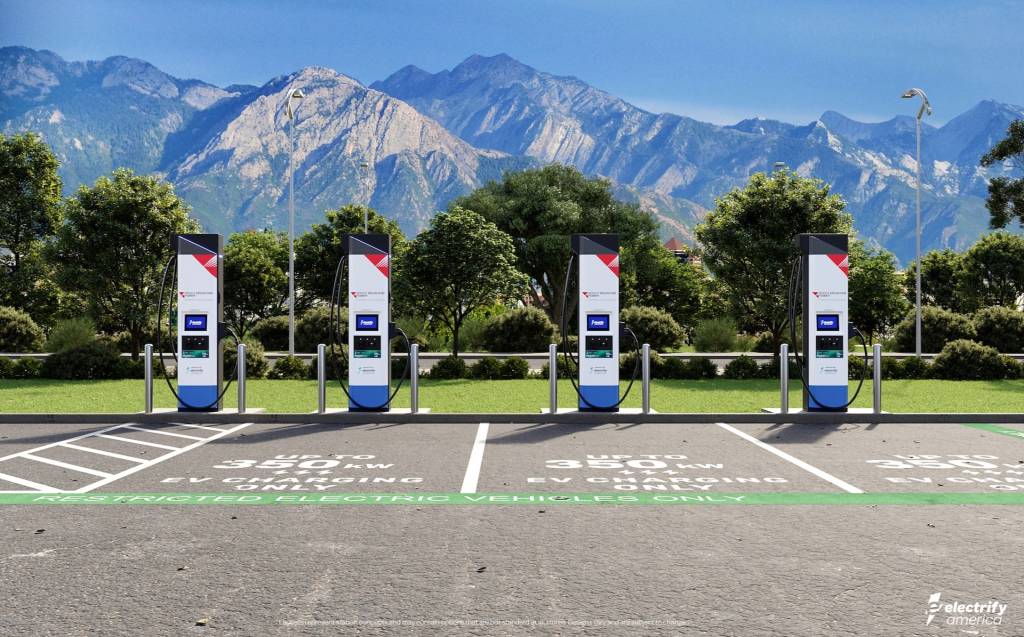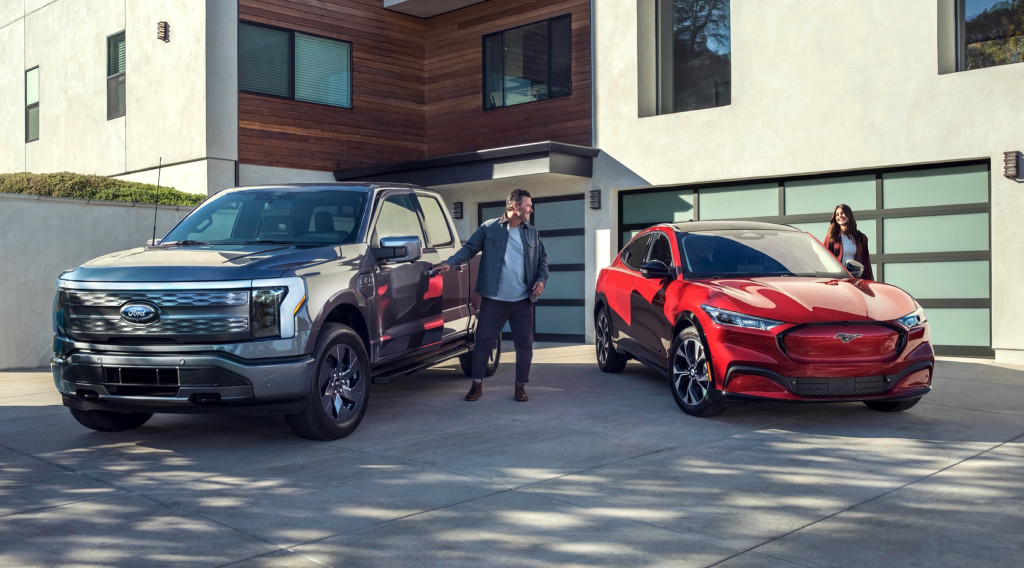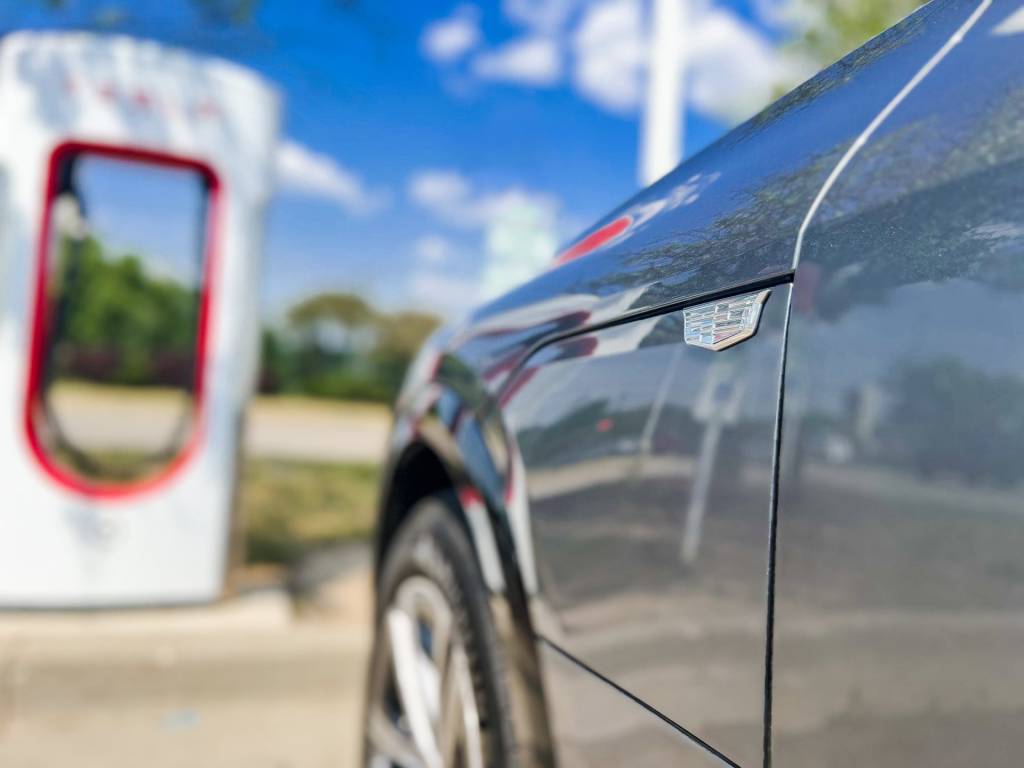Electric vehicles are no longer limited to a few body styles or price points, and more companies than just Tesla are poised to ramp up production to meet the backlog of demand.
But as one major shopping survey and resulting study have found, at least ahead of the bulk of the federal EV charging network buildout starting this year, there’s one dealbreaker that could put the brakes on a groundswell of EV adoption. A slow rollout of public chargers is contributing to some would-be EV buyers deciding to fuel up at the gas pump for another few years.
The 2023 U.S. Electric Vehicle Consideration Study, out Thursday from the automotive survey giant J.D. Power found that 26% of new-vehicle shoppers said that they were “very likely” to consider purchasing an EV—up from 24% in the same survey a year ago. The portion saying they were “overall likely” to purchase an EV also rose two points, to 61%.

Electrify America EV chargers for utility Rocky Mountain Power
Power says that while model availability has grown significantly over the past year, charger availability has grown more modestly—13% year over year, versus 33% for the period ending last year. And it is truly the dealbreaker for a lot of these EV shoppers.
Specifically Power found that 49% of shoppers selected a lack of charging station availability as the primary reason for rejecting an EV. And those considering a Tesla say that charging-station availability is a greater reason to buy those models versus other brands. Tesla drivers cover more annual miles in their EVs than those of other brands.
And no, the firm pointed out that it’s not home charging that’s the problem—at least not as much.
“Most EV owners will say charging is one of the greatest benefits of ownership, because 85% of it is done at home,” said Stuart Stropp, J.D. Power’s executive director of EV intelligence. “But it’s the exceptional use case—like a vacation road trip—that’s holding shoppers back.”
“The growth in public charging isn’t keeping pace with the rising number of EVs on the road,” said Stropp.

Ford Mustang Mach-E, F-150 Lightning getting CATL LFP batteries
There are some firm indications that shoppers are thinking differently about EVs than they were even a couple years ago. Thanks to the proliferation of longer-range EVs plus awareness of the operating-cost advantages of EVs, a longer commute now corresponds to increased EV consideration—because it helps cut fuel costs
This year’s study fielded 8,136 consumer responses from February through May 2023 and included considerations for geography, demographics, lifestyle, and psychographics, Power says.
The company points out, as others have before, that any personal experience with an EV greatly increases the likelihood people will consider one. Those who have merely ridden in one are twice as likely to consider one.
Just earlier this week, results from Ipsos suggested that misconceptions about EV cost may also be a dominant reason what it saw as waning interest in EVs.
This year marked big gains in EV interest among plug-in hybrid drivers. Power said it saw PHEV drivers “very likely” to consider an EV jump 11 percentage points this year—likely rooted in the greater range of EVs that have become available.

GM EVs get Tesla Supercharger access in 2024
Recently both Ford and GM have in recent weeks announced that they will give drivers access to the top-rated Tesla Supercharging network starting early next year—with app functionality and a provided adapter—while starting in 2025 some new EVs from the automakers may start featuring the Tesla NACS port only.
J.D. Power’s Stropp, in the firm’s release, calls the recent announcements “particularly noteworthy.” It’s of course too early for the firm to have any results indicating how such availability would change attitudes.
Just earlier this spring, Power released findings that customers were rejecting EVs at a higher rate than before—driven both by cost and by charging availability. If adding Tesla’s expansive charging network is enough to turn those rejections around, that may prove to be a smart investment for GM and Ford.

